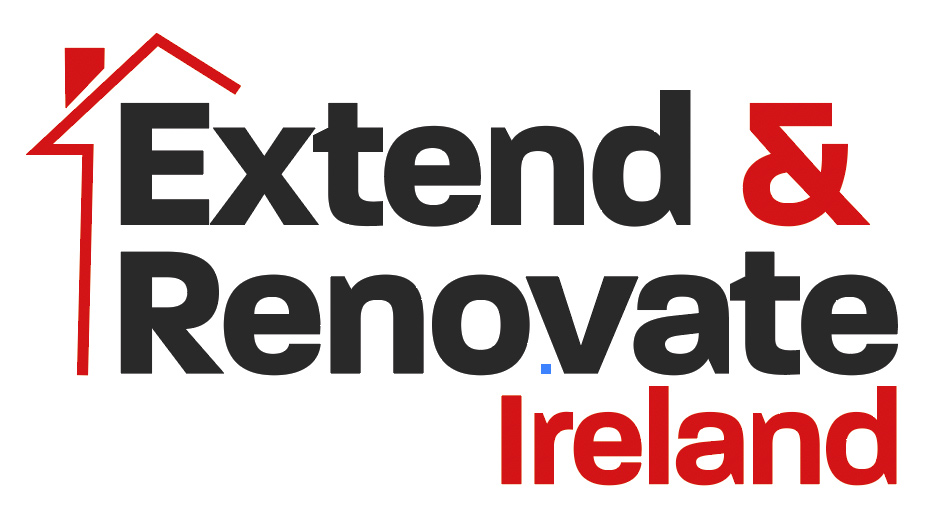Building an extension to your home in Ireland is an exciting project that can significantly enhance your living space and property value. However, before embarking on this endeavor, it’s essential to understand the various factors that can impact the cost of your extension. In this comprehensive guide, we will break down the costs associated with building an extension in Ireland, providing you with valuable insights to make informed decisions about your project.
I. Roof Design and Its Impact on Cost
1. Size and Shape
The size and shape of your extension play a pivotal role in determining the overall cost. A building with a simple, rectangular or square shape is typically covered with a pitched roof, which is more cost-effective. In contrast, complex shapes may require flat roofs, which can be more expensive due to added complexity in construction.
2. Ridge Height
The ridge height, or the total height of the house, can influence your roofing choice. Flat roofs can maximize internal floor-to-ceiling height in properties with height restrictions.
3. Appearance
Aesthetics also play a significant role in roof design selection. Pitched roofs may be better suited for small building designs, but local regulations, planning restrictions, and personal preferences often dictate the final choice.
4. Roof Finish*
Choosing the right roof finish is crucial for longevity and cost considerations. Some finishes, like zinc, may not last as long as natural slate and may require additional structural support. Traditionally, pitched roofs were preferred for their durability and aesthetic appeal.
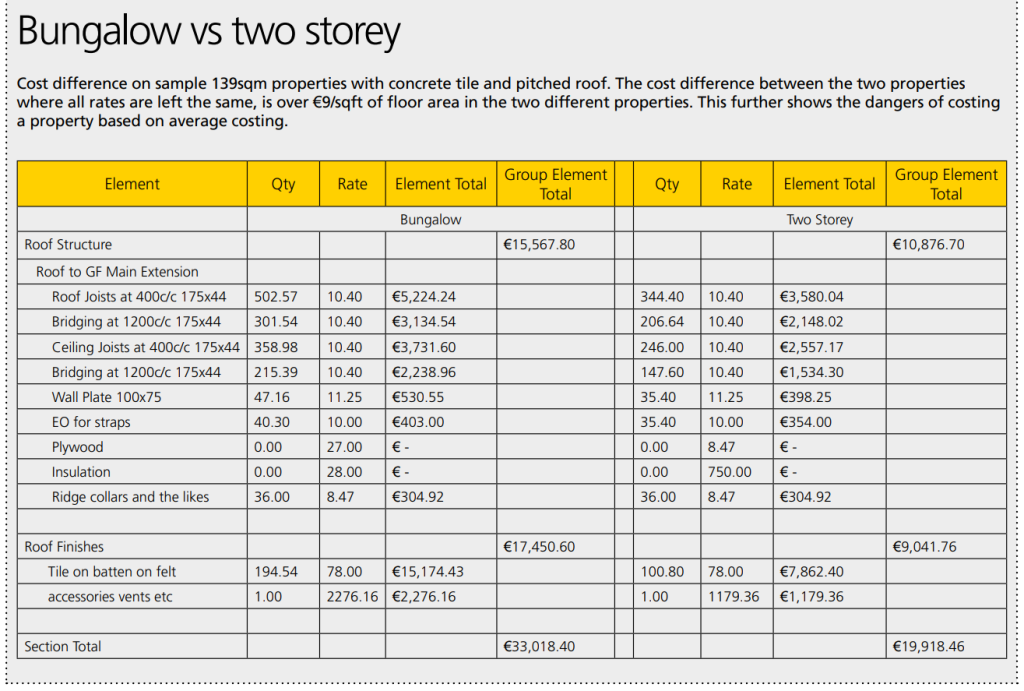
II. Costs of Pitched Roofs
A pitched roof is defined as having a slope greater than 10 degrees, with the minimum slope generally not less than 15 degrees. Modern construction trends have shifted towards prefabricated trussed rafters, which are quicker to install but may limit future modifications.
1. Trussed Rafters vs. Cut Roofs
Trussed roofs, which are prefabricated off-site and craned into position, offer faster installation and flexibility. Cut roofs, traditionally constructed on-site by carpenters, involve higher labor costs but lower material costs.
2. Design and Engineering*
Regardless of the roofing system, detailed engineering and design are essential. Factors like rafter layout, size, spacing, and fixings can vary significantly, affecting overall project costs.
III. Costs of Flat Roofs
Flat roofs, defined as having a slope of less than 10 degrees, are becoming increasingly popular for their cost-effectiveness, especially for large roof areas or complex shapes.
1. Construction Materials*
Flat roofs are typically constructed using timber joists and plywood or occasionally concrete. The choice of materials can impact costs and durability.
2. Roof Deck Types*
Flat roofs can be built with cold roof decks, warm roof decks, or inverted warm roof decks. Each has its advantages and cost implications, with the warm roof deck being the most common for better temperature control.
3. Insurance Considerations*
Insurance companies often view flat roofs as higher risk than pitched roofs. It’s crucial to discuss this with your insurer to understand the long-term cost implications.
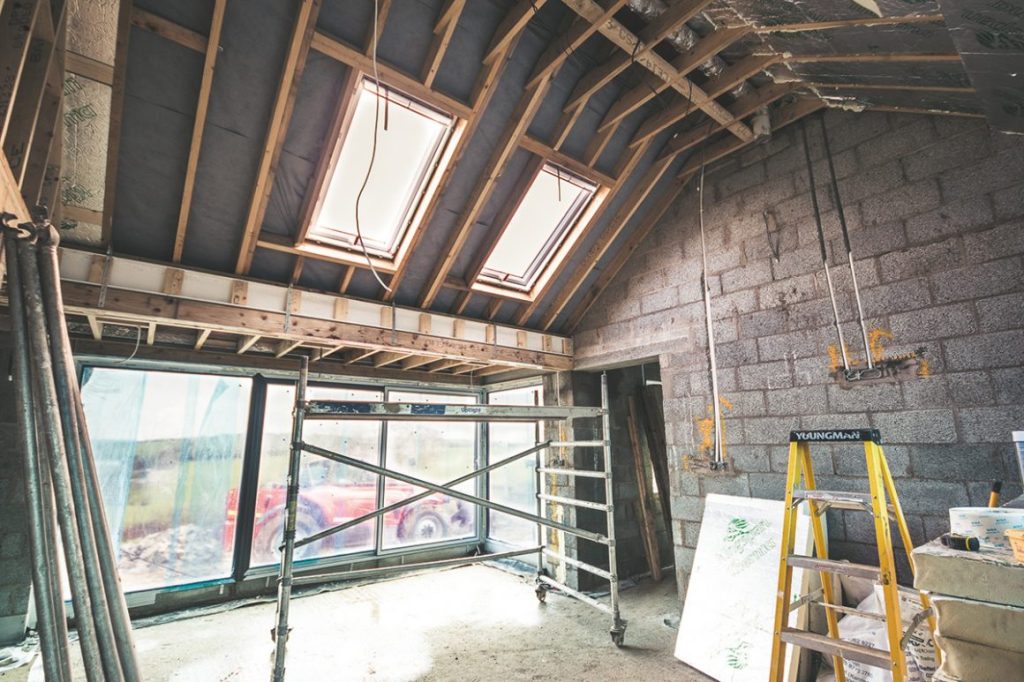
IV. Roof Finish Costs
Roof finishes play a significant role in the overall cost of your extension. Different materials have varying costs and lifespans.
1. Common Roof Finishes*
Modern flat roofs are often finished with built-up bitumen felt or uPVC systems, costing between €80 to €120 per sqm. Fiberglass is another popular option, priced at less than €70 per sqm.
2. Pitched Roof Coverings*
Traditionally, pitched roofs were covered with natural slate, but the cost has increased significantly. Fibre cement slates and concrete tiles have become more common due to their affordability.
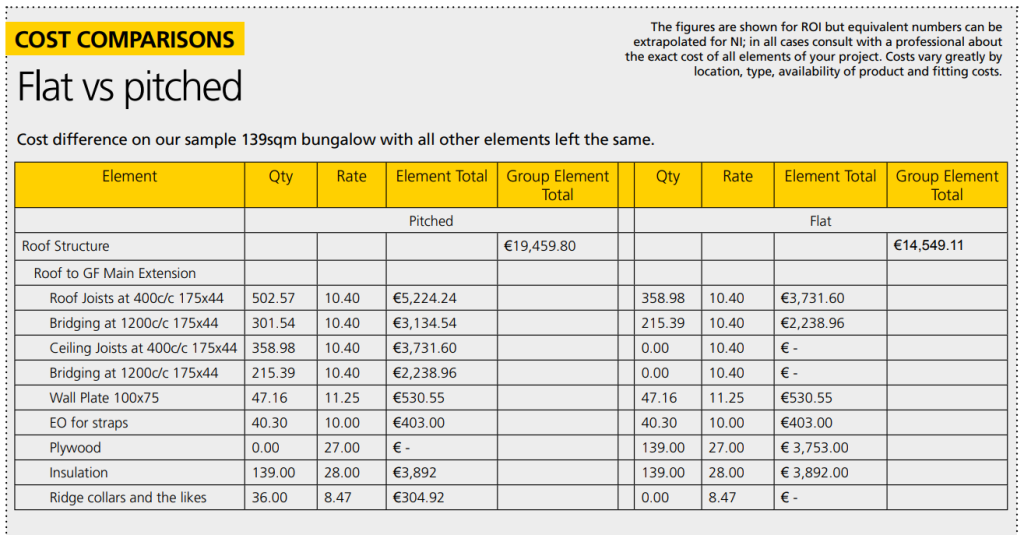
V. Roof Covering Options: Slates to Tiles
Choosing the right roof covering involves considering durability, aesthetics, and cost.
1. Natural Slate*
Natural slate is known for its quality but can vary in cost depending on origin. Spanish slate is the most common in Ireland, with costs ranging from €20 to €30 per sqm.
2. Fibre Cement Slates*
These man-made slates come in various colors, are uniform in shape, and cost less than €1 per slate.
3. Concrete Tiles*
Concrete tiles are available in different designs and generally cost less than €1 per tile, with variations in the number of tiles required per sqm.
4. Less Common Roof Coverings*
Wood shingles, thatch, and sheet coverings are non-standard products and can be expensive. Metal-based coverings are more common for flat roofs but require additional detailing and can cost around €200 per sqm.
VI. Best Value for Money
Choosing the best value for money in roofing involves considering your specific needs, climate, and project constraints.
1. Roof Covering Selection*
Concrete roof tiles, large format interlocking clay, fiber cement imitation slates, natural Spanish slate, and Bangor Blue Welsh slate offer various price points and performance characteristics.
2. Due Diligence*
Before selecting a roof covering, perform due diligence on your supplier, their credentials, certifications, and warranties. Ensure your choice complies with relevant regulations and standards.
3. Roof Pitch*
The roof pitch will also influence your choice of roof covering. Not all coverings are suitable for all designs and locations.
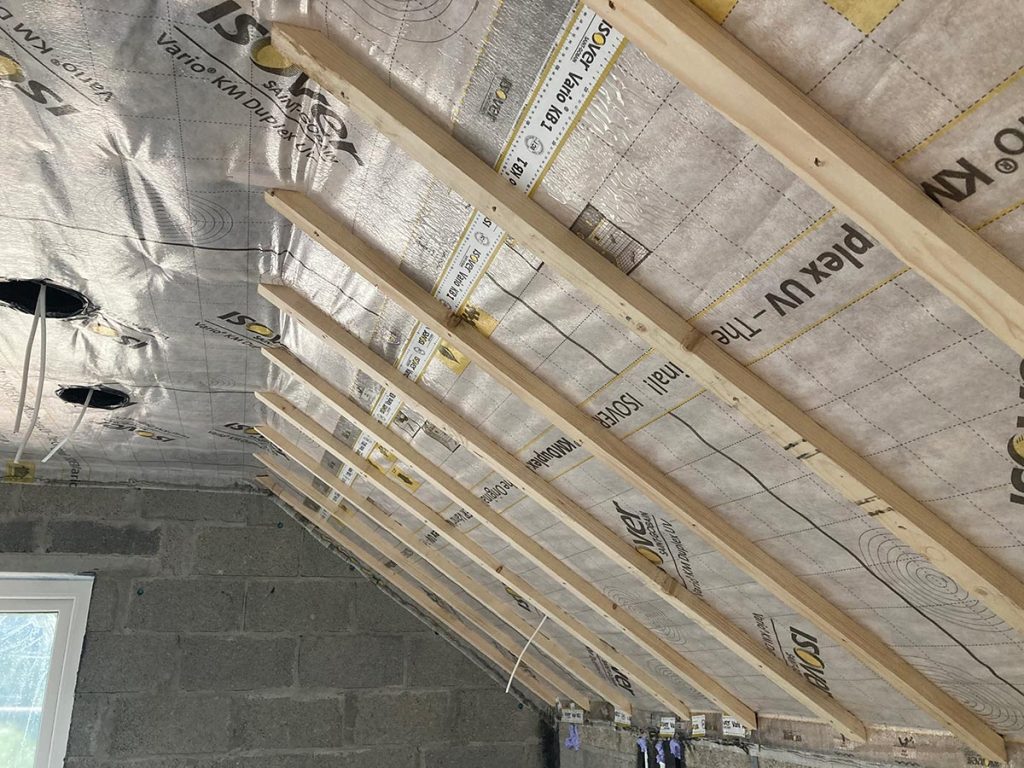
Conclusion
Building an extension in Ireland is a significant investment, and understanding the costs associated with roof design, roofing systems, and finishes is essential. By considering factors such as size, shape, appearance, and materials, you can make informed decisions that align with your budget and project goals. Remember to conduct thorough research and work with experienced professionals to ensure a successful extension project that adds value to your home.
